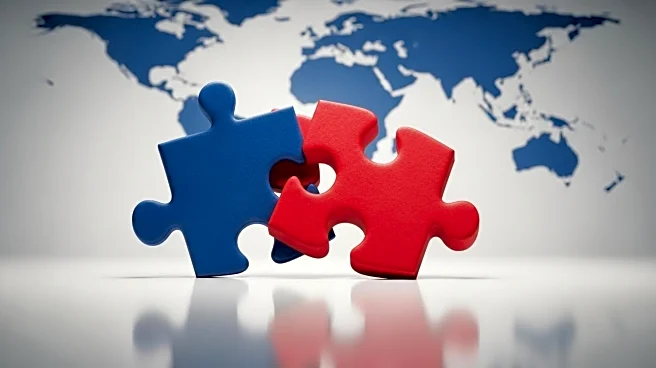What's Happening?
On September 21, 2025, a bipartisan delegation from the U.S. House of Representatives, led by Democratic Representative Adam Smith, visited China to stabilize relations between the two countries. This visit marks the first House delegation to China since 2019, following a period of strained ties exacerbated by trade tensions, U.S. restrictions on semiconductor chips, TikTok ownership issues, and Chinese activities in the South China Sea. The delegation met with Chinese Premier Li Qiang, emphasizing the need for increased engagement between the world's two largest economies. The visit follows a recent call between President Trump and President Xi Jinping, aiming to 'break the ice' and foster dialogue and cooperation.
Why It's Important?
The visit is significant as it represents a potential thaw in U.S.-China relations, which have been tense due to various geopolitical and economic issues. Improved relations could lead to better cooperation on global challenges such as trade, technology, and security. The visit also highlights the importance of diplomatic engagement in resolving international disputes and fostering mutual understanding. Both countries stand to benefit from stabilized relations, potentially leading to economic growth and reduced military tensions in sensitive regions like the South China Sea and Taiwan.
What's Next?
The visit may pave the way for more frequent exchanges between U.S. and Chinese lawmakers, fostering dialogue and cooperation. Future discussions could address specific issues such as trade agreements, technology sharing, and regional security. The U.S. may also continue to engage with Taiwan, which could affect relations with China. Stakeholders, including political leaders and businesses, will likely monitor developments closely, as improved relations could impact global markets and international policies.
Beyond the Headlines
The visit underscores the complex nature of U.S.-China relations, where economic interests often clash with political and security concerns. It also highlights the role of diplomacy in navigating these challenges. Long-term implications could include shifts in global power dynamics, with both countries seeking to balance cooperation with competition. Ethical considerations, such as human rights and environmental policies, may also influence future engagements.








